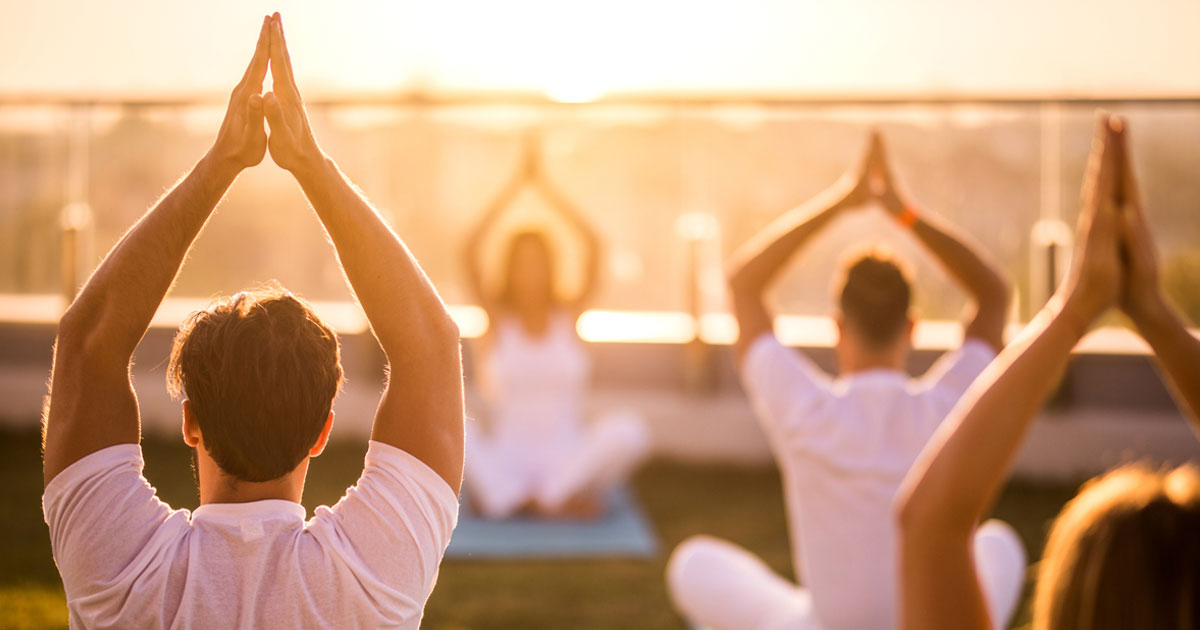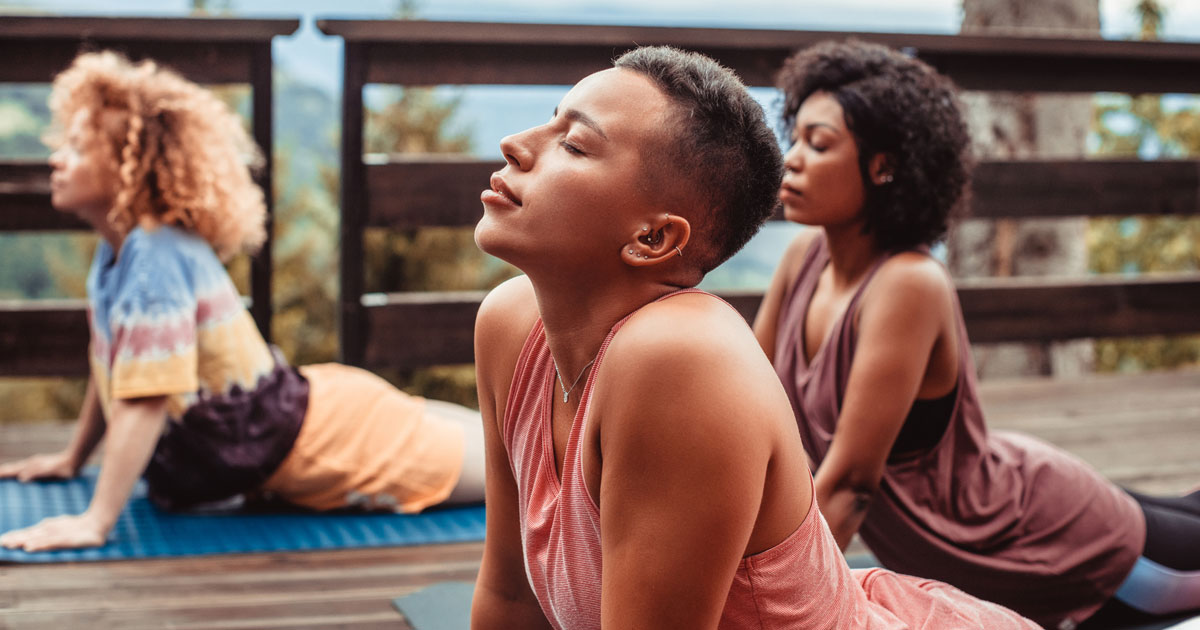Recovery from addiction is one of the hardest medical and personal battles you can fight. No matter what addiction you are battling, you need every tool available. One of those tools is the discipline and physical health benefits presented by yoga.
Does Yoga Really Work With Drug Addiction?
Yoga is often touted as a holistic treatment option for addiction. However, picking up yoga thinking it can work as the exclusive path to overcoming addiction isn’t a sound approach. Overcoming addiction usually requires a melding of multiple treatments.
Yoga is one of the finest physical activities you can employ while battling addiction because of its relaxing and non-stressful traits. Yoga can help trigger the same positive endorphins as vigorous exercise without the discomfort or exhaustion more strenuous activities like weight training or distance running can cause. So, why is it useful for addiction treatment in particular?
The Impacts of Addiction
Addiction is difficult to understand, both for people who suffer from it and for those fortunate enough to have never experienced it. Alcohol, drugs, gambling, and other easily addictive behaviors can all take hold of the mind and become an ever-present factor in the brain. Unfortunately, addiction comes with stigma and misunderstanding that often increases the desire to embrace a vice rather than defeat it.
While suffering from addiction, people often sacrifice their finances, family, friendships, and personal wellbeing in pursuit of the addictive substance or behavior. Even the more innocuous addictions like smoking or chewing tobacco represent the potential sacrifice of health in the long term to garner the quick satisfaction of dopamine in the brain in the short term.
Society has a vested interest in helping prevent and treat addiction. Broken families, criminal activity and departure from the workforce are symptoms experienced by society. Some of the world’s wealthiest nations and best healthcare systems, including America’s, are struggling with the daunting task of treating rising addiction rates.
There are several socio-economic conditions that are risk factors for addiction. Poverty and financial insecurity are among the leading contributors to addiction, and addiction often makes these conditions worse. Abuse, whether physical or emotional, adds risk. Family or friends who demonstrate addictive behavior, especially from an early age, can also contribute to addiction’s spread.
Using Yoga to Help Fight Addiction
Addiction embeds itself into the brain, impacting the endorphins your body releases and dictating the dopamine levels that control satisfaction and pleasure. Yoga and mindful meditation are effective ways to take back control of some of the chemical processes of the mind. Yoga is also an easily accessible method of treatment that can be done alone or in groups, under instruction or at your own pace and comfort level.
As mentioned, drugs and alcohol change the brain’s physical state over time, impacting emotional regulation, impulses, the ability to feel pleasure and the decision-making process. The brain is forced to attempt to find its own new point of balance. Of course, yoga can’t prevent the socio-economic and trauma-related factors that contribute to substance abuse, but it has shown effectiveness in retraining the brain and preventing the addition of addictive behaviors.
Cessation from addiction and substance abuse can help the brain heal and return to a more natural state of functioning. That’s easier said than done, as ceasing substance use is both difficult and, in some cases, dangerous if the substance has been used long enough to cause serious withdrawals. Withdrawal symptoms include increased anxiety, stress, and fatigue. Yoga can help during both the cessation and the recovery periods.
What Effects Does Yoga Have on the Brain?
Yoga can help with the regulation of cortisol and adrenaline, two hormones associated with stress. Lowering stress is one crucial step toward diminishing the addicted brain’s appetite for the substance or behavior being abused. Additional evidence that yoga makes a major impact on helping the brain heal from addiction include:
- An increase in gamma-aminobutyric acid produced by the brain from yoga participants. This chemical is used by the brain to regulate stress and anxiety.
- The brain has larger volume in the areas that impact stress and self-awareness.
- Significant decreases in anxiety levels after yoga training.
Yoga Helps to Stay in the Moment
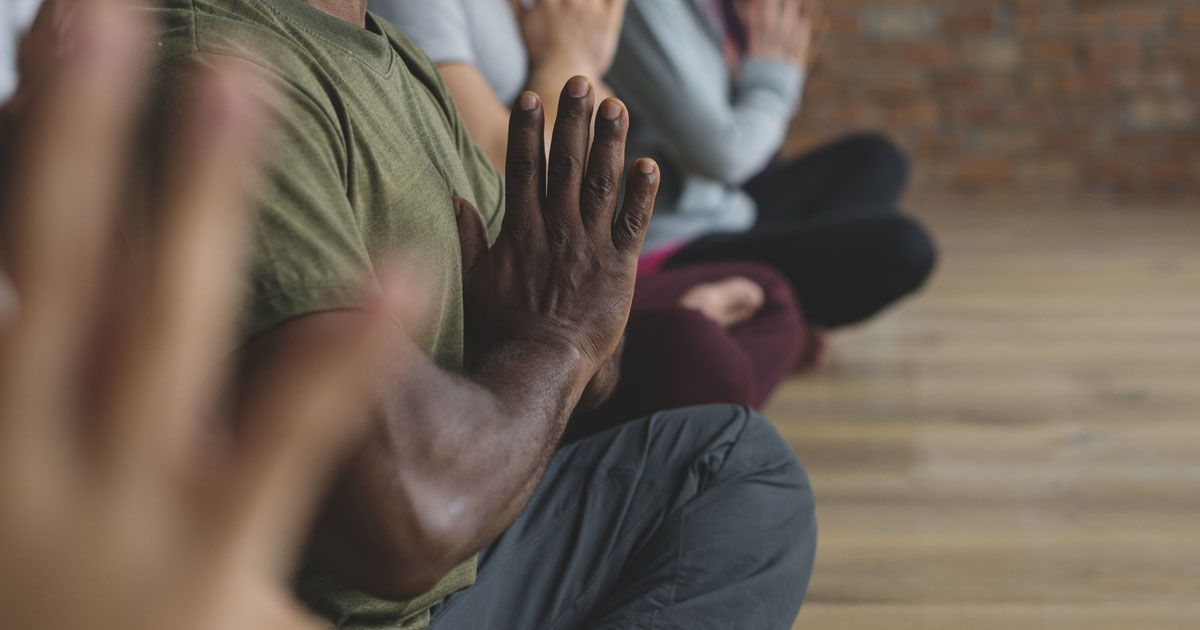
Overcoming addiction is a struggle, and a permanent one. In fact, people are considered to be in recovery from addiction for the rest of their lives. The potential for relapse is present for most people years after the last time they engaged in addictive behavior.
That’s why being present in the moment and experiencing a keen sense of self-awareness are valuable tools for continuously defeating an addiction. Yoga is a wonderful tool to use in addiction recovery because it promotes this mindset. Without a dedication to remaining present, the portions of the brain that promote addictive behavior have a much better opportunity to guide decision making in a negative manner. Pairing yoga with talk therapy can be a particularly effective combination for promoting presence of mind and emotional maturity to fight addiction.
Reducing Symptoms of Drug and Alcohol Withdrawal with Yoga
Struggling with withdrawal is a setback that often drives those already struggling with addiction back to the vice they are trying to escape. The physical and mental toll of withdrawal is taxing, and at times may make recovery feel like it’s not worth it. A professional rehabilitation plan may involve weaning off the substance to make the changes on the brain slower and prevent dangerous reactions from sudden cessation.
Combatting withdrawal is a great example of an effort where yoga training is effective. However, it may not be the only approach needed. Yoga can help the brain produce relaxing and pleasurable chemicals, counteracting anxiety and overstimulation caused by addiction and withdrawal. The stretching, breathing and meditation involved with yoga treat both the physical and mental symptoms.
By becoming more attuned with your own body, people can develop coping mechanisms for negative physical pain or mental feelings that don’t involve substance abuse. Self-awareness regarding how you are thinking and feeling are important tenets of yoga and are also critical skills in the battle against addiction and relapse.
As addiction treatment becomes draining emotionally and economically, integrating yoga as a tool has the potential to ease both burdens. As part of the recovery process, yoga is a wonderful way to help people have a tool to help themselves.
What Specific Yoga Poses Are Beneficial for Addiction Recovery?
While yoga can aid in the recovery process in all the ways mentioned, there are certain poses that can help more than others:
Downward Facing Dog
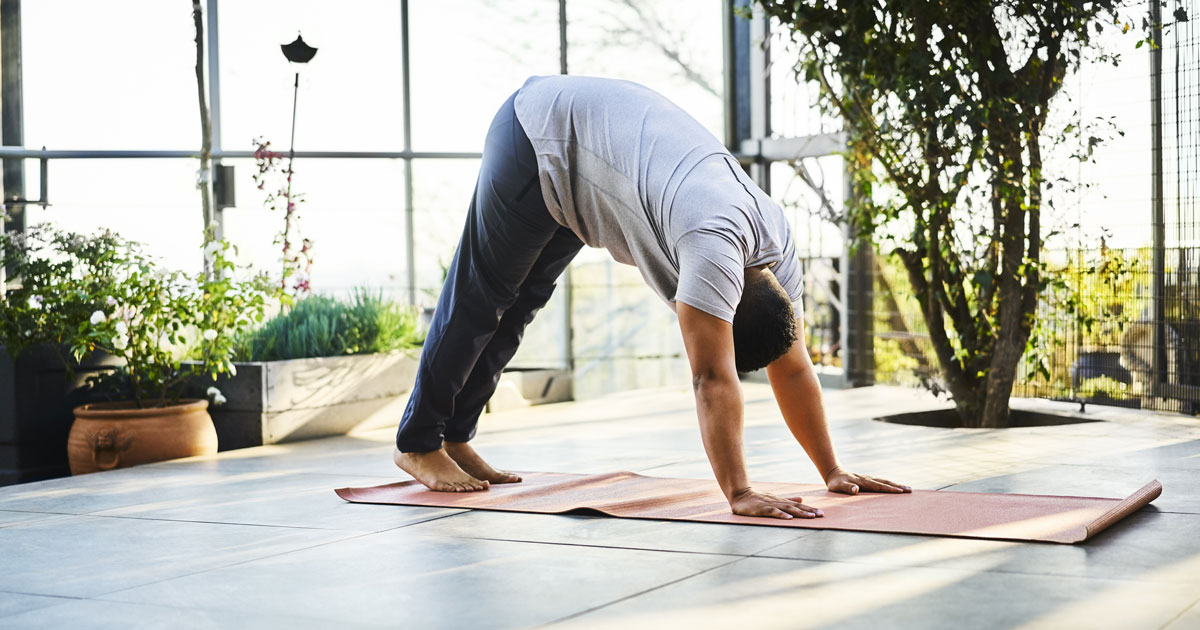
One of the simplest poses to learn, downward dog makes your muscles longer and stronger. It is also the starting point for many other important beneficial stretches and poses. Supporting your body weight on your hands and feet, lift your hips into the air to form a pyramid shape with your body. The pose relaxes tension in the body and the mind.
Fish Pose
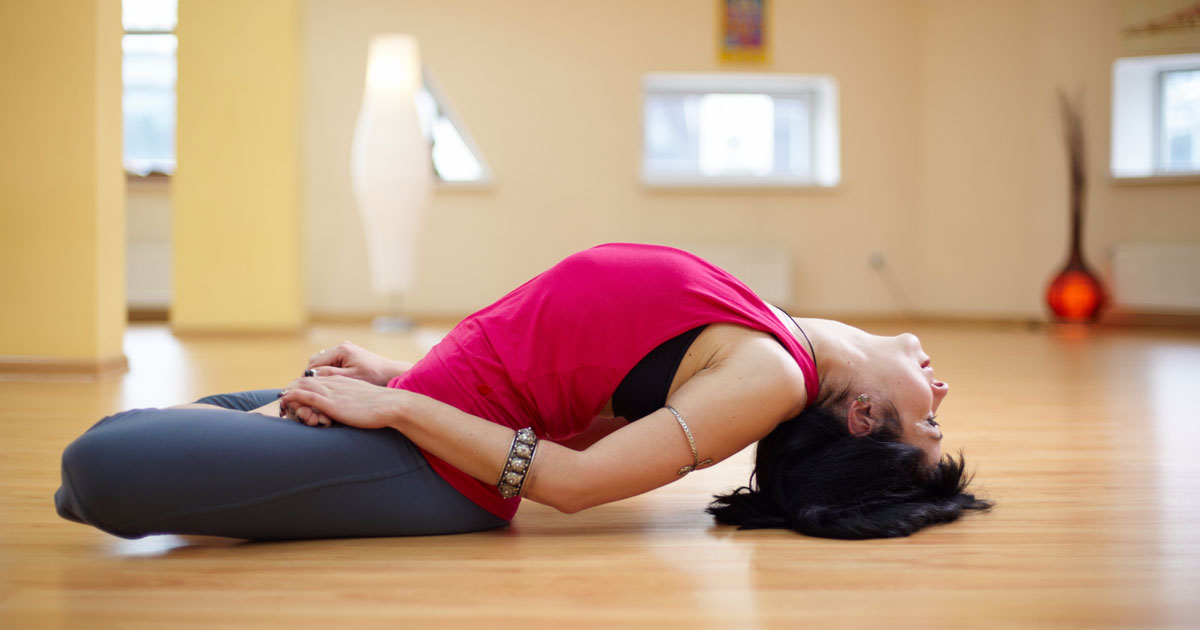
Laying down with feet together, lift the chest and shoulders and rest on the forearms, moving your hips toward the elbows and lifting the hips upward. Holding this pose for five to 10 breaths stretches the thoracic spine, shoulders, and chest in a way that promotes circulation and relieves stress.
Low Lunge
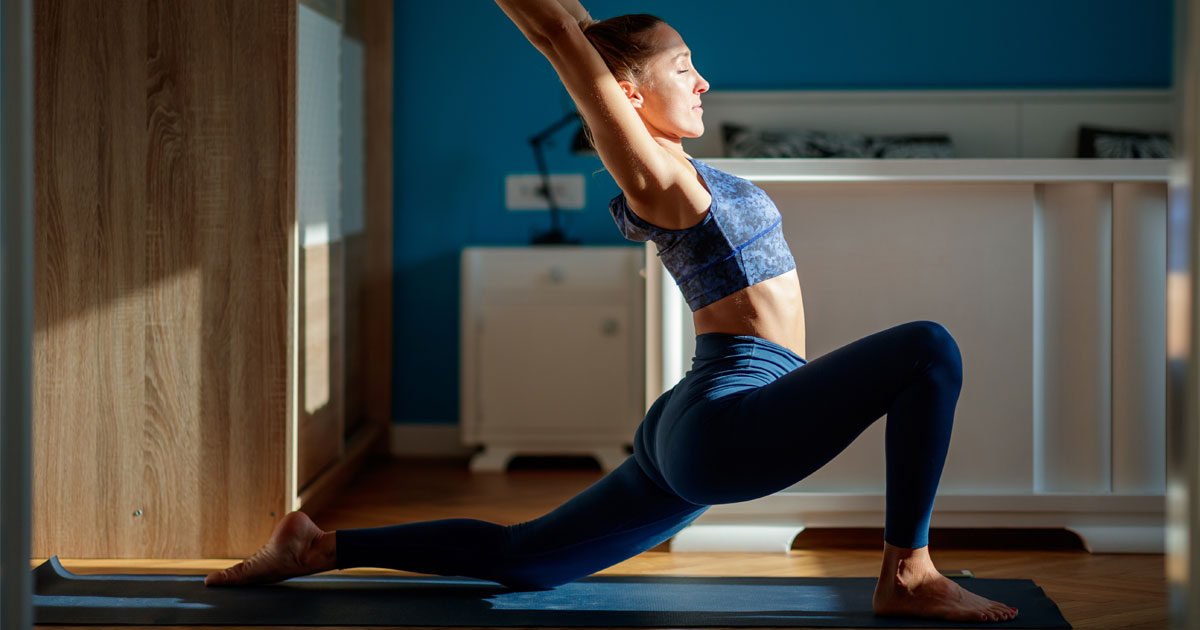
From the downward facing dog position, bring the right leg forward so the knee is directly above the ankle. Raise the upper body to an upright position while letting the left leg extend along the ground. The low lunge stretches the hips, psoas, flexors, and groin, all of which tend to retain tension.
Pigeon Pose
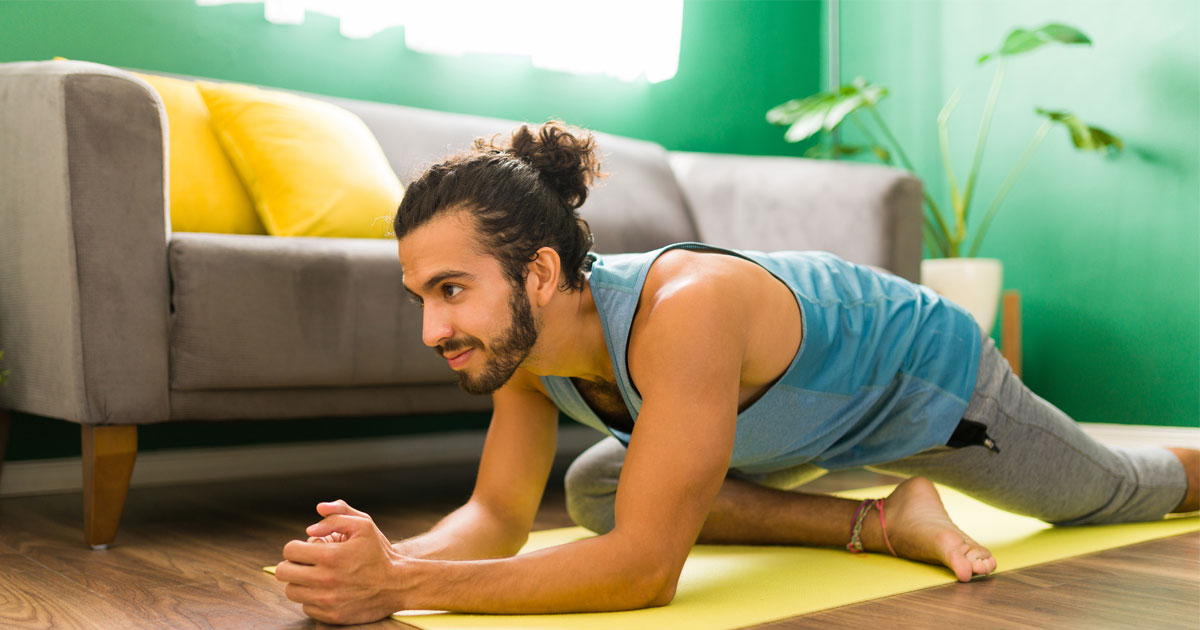
Expel stored up tension from the hips with this pose. This intermediate-level pose requires some practice, as it involves curling one leg under the body while extending the rear leg flat with toes pointed outward.
There are several other poses and breathing exercises that can help with relaxation to promote addiction recovery. It’s less important to focus on learning a specific set of poses than it is to engage in yoga in a way that helps you achieve your goals. If a particular routine helps you feel fulfillment, it will naturally help combat the urge to fill your time or bury trauma with substance use.
